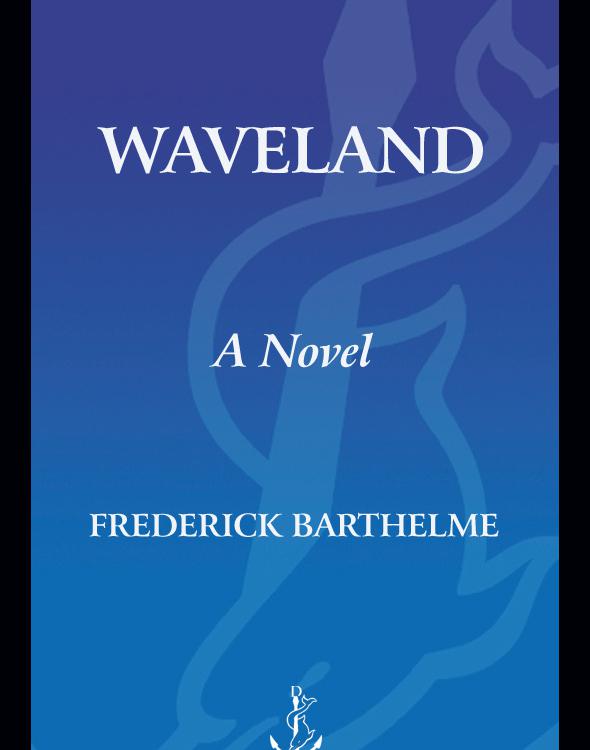
Waveland
Vintage Contemporaries
- اطلاعات
- نقد و بررسی
- دیدگاه کاربران
نقد و بررسی

November 3, 2008
In his first novel since PEN/Faulkner finalist Elroy Nights
, Barthelme offers a strangely detached exploration of the post-Katrina Mississippi Gulf Coast. One year after the hurricane and a divorce, Vaughn Williams has more or less recovered from the shock of both. Renting a room from a younger woman who was widowed under mysterious circumstances, Vaughn slides into a low-key romance with his landlady. Their cordial yet detached friendship with Vaughn's ex-wife, Gail, is put to the test when Gail asks Vaughn and his girlfriend, Greta, to move in with her after she's assaulted by her new boyfriend. The change of scenery does little to simplify Vaughn's love life, and his strange new role stirs up his guilt surrounding the death of his father and estrangement from his brother. Oddly, though, Vaughn never seems overly concerned about the developments around him; Gail's new beau never emerges as a threat; and Greta does not seem bothered by the living arrangement. There are some beautifully written passages, but Barthelme's reluctance to break his characters' cozy familiarity makes it difficult for readers to engage with Vaughn's apparent struggles.

January 15, 2009
The Mississippi Gulf Coast in the aftermath of Katrina provides the backdrop for a man in hell, in Barthelme 's latest novel (Elroy Nights, 2003, etc.).
The protagonist, Vaughan Williams, is the saddest of sacks, a failed architect whose wife, Gail, has divorced him, whose father 's death has shaken him and who has somehow stumbled into a relationship with the notorious Greta Del Mar, accused of, though never convicted of, murdering her husband. Vaughan had married Gail on the rebound from her brief affair with his brother, Newton, who is younger, far more successful and was obviously the favorite of their parents. Before Vaughan 's father died, he kept making passes at Gail, urging her to leave her hapless husband. So far, pretty funny. Then a fight with her younger boyfriend lands Gail in the hospital, and she turns to Vaughan and Greta for comfort. They move in with her and relationships become more complicated and more pathetic. Gail and Greta start to seem a little too sisterly, while Gail 's on-and-off desire to reunite with Vaughan undermines his relationship with hard-boiled Greta. "It 's the modern world, blasted into the heart of your life, " she says to Vaughan. "You 're in the cross hairs of destiny. " Ultimately, Vaughan begins to agree with his father, that "maybe it was inevitable that the world got dirtier and smaller and crueler with each generation. Coarser —his father 's word —was the best word for it …This was a startling proposition, to suggest that the dominant process over time was not development but deterioration. " It 's also a proposition reflected in the lack of recovery after Katrina, when everything fell apart just like Vaughan 's life, and which the book describes in a manner that could pass as reportage. Yet ultimately this is not a topical novel, dependent upon a specific time and place. It 's a novel about the human condition, absurd at best, a soundtrack for "dancing toward death. "
Seems very funny at the start, but turns increasingly dark and ends on a note of possible redemption.
(COPYRIGHT (2009) KIRKUS REVIEWS/NIELSEN BUSINESS MEDIA, INC. ALL RIGHTS RESERVED.)

May 11, 2009
Barthelme's work has always captured the essence of the contemporary American landscape. His 12th book, set in the aftermath of Hurricane Katrina, follows an aimless, semiretired architect, his new landlady/paramour, and his ex- (but not yet properly divorced) wife. "A happy, if elaborated, family," the author explains when they all move in together. Ghosts abound-of their youth, their parents, and their former jobs and dreams. Verdict: Barthelme's wry tone carries this rather morose book, which is sparse on adjective and detail: "The envelope was gray. The world was different. Days were longer, nights were unbearable. Sleep was a treasure." The sly, self-effacing humor recalls other Southern writers like Padgett Powell and Charles Portis. There are maybe a few too many references to contemporary television programs, but that shouldn't stop readers from grabbing this book. [See Prepub Alert, LJ 12/08.]-Travis Fristoe, Alachua Cty. Lib. Dist., Gainesville, FL
Copyright 2009 Library Journal, LLC Used with permission.

February 15, 2009
In his newest novel of dysfunction and love along the Mississippi Gulf Coast, Barthelme, as he did so incisively in Elroy Nights (2003), dissects middle-age malaise. His characters often seem shipwrecked, and in this off-kilter story of death and divorce, they pretty much are after Katrina transforms the modest beachfront town of Waveland into ten miles of debris. Barthelme offers stunning descriptions of the hurricane and its aftermath as he tracks unmoored Vaughn, an architect who has lost his passion for buildings and romance after his reliably unpredictable wife ends their marriage. Brooding, funny, and oddly passive, Vaughn has wandered into a companionable relationship with Greta, the prime suspect in her husbands murder, and a skittish friendship with hair-trigger Eddie, who lost a hand in the first Gulf War. Meanwhile, Vaughnswidower father endures acruelly limited existence. In thispowerfully atmospheric story of loneliness and risk, Barthelme slyly conceals emotional and philosophical intensity beneath the peculiarity of circumstance, the dazzle of hilarious repartee, andthe luster of gorgeous prose.(Reprinted with permission of Booklist, copyright 2009, American Library Association.)




دیدگاه کاربران